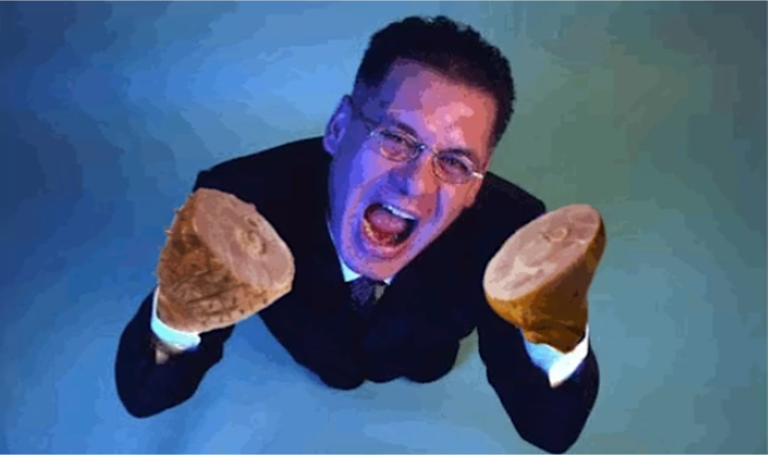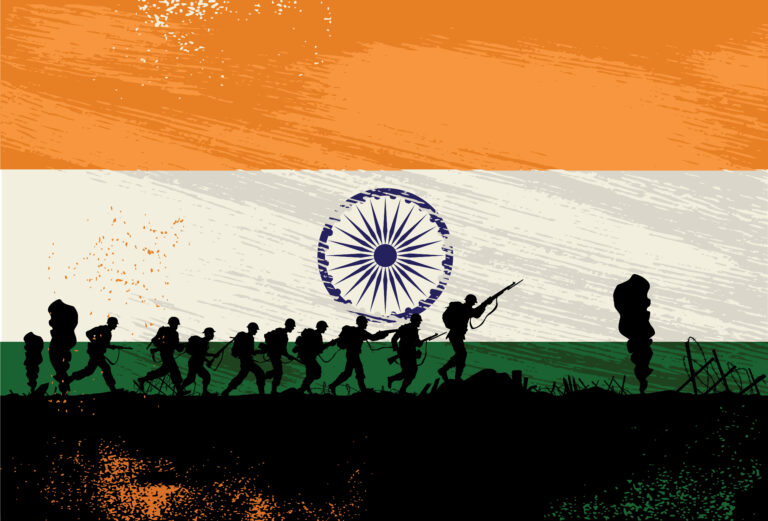With a subtitle like, The New Betrayal of America and How to Resist It, a reader might expect such a book to be primarily polemical in its orientation. And in that regard, John Kekes does not disappoint in his latest offering; this is a polemical book, a polemical book about America in particular. But the subtitle informs the title – The Art of Politics – which suggests a serious study of politics as an art (which is to say not a science on the model of the social sciences). This book is political in two senses then: as a public argument about what is desirable in a modern democracy like America, and as a philosophic treatment of politics in general.
Before exploring the doubly political nature of this work, we note that Kekes himself is both an American by choice and a scholar. Born in Hungary, he lived under Nazi and communist regimes before becoming an American citizen. As a scholar, he has written broadly on ethics and political philosophy having served as Research Professor at the State University of New York, as well as penning numerous works on ethics, politics and epistemology for Cornell University Press. This latest undertaking nicely combines his past efforts in a work that is at once popular and rigorously philosophic.
In terms of the two elements of the book, we can begin where Kekes begins, with the public and polemical. Kekes clearly has a target in mind and he uses all his rhetorical force to take it on: that target is ideologues. From the outset, Kekes identifies the greatest threat to American democracy (and stable democracy in general) as those who would submit political goods to an all-encompassing ideological perspective. Practically speaking, these groups are fairly easy to identify. In the United States, they tend to consist of those movements that focus significantly on a critical approach to America, overstating its flaws to create a caricatured picture of political reality. This critical condemnation is then followed by an active and equally narrowly conceived moral project that seeks to expunge the offending components of the status quo in order to institute the ideologues’ corrected and morally superior program.
But as Kekes points out, there is more to the ideologue than the straightforward picture of the reformer bent on changing the system. The ideologue is not merely the foil to stagnant conservatism. After all, if it were that simple then today’s stubborn conservative would be nothing more than the lately-come defender of yesterday’s ideological reform; nothing would differentiate the ideologue and conservative but the passage of time. Rather, Kekes contrasts what he calls the “balanced view” with the ideological. Unlike the ideological perspective with its reduction of politics to a single moral imperative, the balanced view recognizes a plurality of goods, weighed and measured with each other on the political level within a defined political community. This would be Kekes’ notion of the human as political animal, his Aristotelian moment.
Equally important, especially in a representative democracy, is what may be called Kekes’ Montesquieuean gloss on his Aristotelian moment. As Kekes elaborates the balanced view, it contains within itself both a party of caution and a party of reform engaged in a continual public debate as regards the best configuration of the plurality of political goods. It is this constant discussion that introduces progress while ensuring a healthy skepticism regarding reform. In sharp distinction to the ideologue’s radical reform based on a singular moral good, the balanced view involves a constant exchange between two parties about the interaction of a specific set of political goods.
At this point, Kekes’ polemical argument – for the balanced view and against the ideological – moves forward in tandem with his general philosophic analysis of the political art. And in this aspect, his argument reminds one very much of Aristotle’s own approach in The Politics. Kekes proceeds by identifying a number of political goods, assessing how the ideological viewpoint reifies each good under a moral imperative, then finally contrasting this with the balanced view. The result is an ever-expanding portrait of the political art that satisfies both the understanding of the philosopher and the action of the political participant.
Thus far, we’ve spoken of a plurality of political goods, but this should by no means suggest that Kekes is a relativist. Kekes clearly sees relativism as itself one of the ideological viewpoints, in fact, one of the most insidious of ideologies. The political goods Kekes expands upon are not infinite in variety as though one could simply pick today a political principle to be cast off with disregard tomorrow. The political goods are substantive, they are specific to politics and they are limited in number. It is their relative arrangement and significance at given times that change, not the goods themselves. There is a nature to politics and it is accessible to prudential reason. Indeed, Kekes begins his articulation of the political goods with the notion of prudential reason as the guiding thread to understanding politics. And in this respect, one notices a definite order in Kekes’ presentation of the various goods. Not only are there a given number of goods, but they build upon each other in a logical progression with reason, as the tool for understanding and balancing the goods, serving as the foundation.
Before enumerating the list of goods, it is worth mentioning that Kekes’ analysis tends to draw on and integrate the insights of numerous political schools. We have already mentioned his Aristotelian framework informed by an approach similar to Montesquieu’s as regards the parties of caution and reform. He also incorporates conservative sources such as Hume and Burke, especially when highlighting the plurality of goods, a common conservative theme. Similarly he invokes the work of moderate liberals such as Tocqueville when discussing the distinction between equality and egalitarianism. While many of these thinkers often held sharply distinct theoretical positions (which themselves have practical importance) the ability of Kekes to draw on each one to outline the nature of the specific goods demonstrates his own ability to implement the balanced view he defends.
Returning to the list of goods, we have already noted that prudential reason – as distinct from theoretical reason – serves as the foundation. Kekes then proceeds to unfold the nature and progress of each good. Following on reason, is reason’s awareness that goods are plural. From this arises a need for necessary limits on political actions that seek to manipulate goods or reduce them to a singular moralistic formula. Next arises the concept of limited liberty as a guarantor against excessive government action, followed by toleration of freedom limited by the necessity to maintain the other political goods. Thus far, we notice a precise theme. Prudential reason recognized the plurality of goods and this plurality suggests a certain human political nature. This is at once an epistemological insight (as concerns the capacity of reason), an ontological insight (as pertains to the plurality of goods within being) and an anthropological insight (as to the place of humans in this reality). Following directly on this is the awareness that, given this reality, the political art must balance these goods, but must not overreach. Hence the need for limits on political power, the preservation of reasonable liberty and the maintenance of toleration whenever possible. But, once again, these goods cannot become absolute; they are part of the political goods as such, they do not tyrannize over them.
Moving forward in the list of political goods, Kekes brings us to two goods often connected and often misunderstood: justice and property. Given what has come before, it is not surprising that Kekes treats justice as “having what one deserves” within the balanced view. Similarly, congruent with this notion of justice and in consort with prudential reason and the plurality of goods, Kekes defends the basic right to private property. Traditionally, this notion of justice and the connected notion of private property have caused considerable controversy among philosophers and in practical politics. Notorious in this regard are Plato’s discussion of justice and communal property in The Republic and Rousseau’s strident criticism of modern property. A common concern for both Plato and Rousseau is the apparent injustice of private property, its excess and its irrationality. Today, we often hear calls for social justice involving a form of redistribution of wealth. It is precisely to meet these critiques that Kekes places his discussion of justice and property where he does, following the epistemological, ontological and anthropological framework he has set down. It is often the case that when one attempts to move too quickly, to identify the nature of justice too quickly, that one runs into problems and proceeds to political disasters. This is exactly the lesson Plato lays out in The Republic where an attack on justice as “having what one deserves” leads too easily to a city constructed merely in speech, a city, which as Aristotle was quick to point out, is no city at all since it ends up destroying most of the various elements that go into constituting a polity.
With this in mind, Kekes approaches justice and private property only after having laid out the necessary preliminary steps. Unlike those who demand social justice today, he approaches justice with more respect given its penchant for eluding us when we rush toward it impetuously. As a result, Kekes also defends a moderate right to private property within this context of justice. In this regard, one would again say that Kekes tends to follow a more Aristotelian approach to property than that found in an author like Locke, who places property at the origin of political life. At the same time, Kekes clearly understands the impetus for Locke’s notion of property, as a defence against overweening authorities (especially clerical) who would submit the political realm to an uncompromising moral law. Property for Kekes is both just (as per Aristotle) and a limit on excessive political manipulations (a la Locke).
Having laid out a political notion of justice and defence of private property, Kekes only then approaches the two goods that dominate our contemporary political reflection (or lack thereof): equality and democracy. Given our current obsession with all things equal and democratic, one might expect Kekes to begin with these goods. But, as with justice and property, these are slippery notions that have led far too many modern thinkers (Kekes names people such as Rawls, Dworkin and Kymlicka) down the garden path. Kekes begins with an observation: today, the most menacing ideology, the most difficult to displace is unfettered egalitarianism and the attendant notion that democracy – defined as equality – must invade and dominate every human relation. As a result, many modern political commentators write as though democracy and equality are the only objects of interest on the political horizon. By contrast, Kekes treats them as political goods among others, and subsequent to his prior discussions on reason, liberty and justice. It is only within this greater context that equality and democracy can take on their properly political meaning.
This is not to say Kekes is opposed to either equality or democracy. Instead, he seeks to elaborate political notions of equality and democracy distinct from the ideological approach which demands their extension to the social and personal realms. In this regard, the main problem is the phenomenon of “politicization.” This is a fairly common term today, and used often by many in the critical school of thought, including feminists and social scientists. The gist of the idea is itself often connected with modern notions of private property, and therefore draws heavily on the criticisms of that institution by Rousseau as mentioned above. The claim made by critical thinkers is that modern industrial society tends to depoliticize all human relations and turn them into impersonal forces of domination. And this is more or less true, at least to the extent that modern thinkers, such as Locke, sought to limit political power in order to counter the destructive battles that had taken place in Europe over religion and politics. It was in the works of these thinkers that civil society and the state were formulated, which itself produced a new battle between whether society or state should dominate at any one time.
Recent critics of this arrangement contended that this depoliticization went hand in hand with a new oppression expressed through private power structures spread throughout society and authorized by the state. This oppression must be unmasked and brought to light. Only then can equality be instituted across political, social and personal boundaries. This is what Kekes refers to as politicization: the effort to construe all relations, whether political, social or personal, as political. But as Kekes clearly points out, there is really nothing properly political about these critical efforts. They simply are not political, but moral and ideological. These critics are correct to point to the depoliticization of human relations in modern liberal democracy, but their own approach is not itself political, but absolutist and moralistic.
By contrast, Kekes distinguishes between the political, the social and the personal. He rejects the “politicization” of all relations by modern critical theory, just as he avoids the complete depoliticization of relations in the manner of modern liberalism. For Kekes, equality is a political concept, and democracy is subsequently applicable to the political realm. This does not mean Kekes is opposed to all movements to improve social equality. Instead, he tends to focus on the importance of social organizations that rely on hierarchical structures, but this does not justify political inequality. Moreover, it is on the personal level where Kekes is most critical of egalitarianism, primarily because of the great differences in human capacities, desires and motivations. As Kekes argues, strict egalitarianism on the personal level would actually introduce a severe form of injustice based upon an arbitrary separation between what is deserved and what is allotted.
Kekes ends his work with a call for civility in political life. Not quite the familiarity of friends, family or lovers, but more than mere recognition of the other, civility is the state of political life that allows for the balanced view. It offers the parties of reform and caution a forum to discuss and debate without the distortions of ideology. It allows them to balance the numerous political goods in a modern democracy.
Having come to this point, the reader is certainly justified in wondering if Kekes’ proposal can really contribute to resisting the betrayal of politics in America, or in any modern democracy for that matter. In some respects, it cannot. Much of this book is philosophic and theoretical. But, at the same time, it is also educational, a model itself of the balanced view. If there is one problem, it is perhaps that the book’s polemical side, its attack on ideologues, suffers ultimately from all political decisions. To some extent, it must simplify in taking sides. Kekes is correct, I believe, to take the ideologues to task. The problem is, ideological thinking has become very much a part of modern thought about politics from the man in the street, to the dedicated public servant, from the politician to the professor. It is rare today that any political argument is entirely free of ideological dross. It is virtually impossible to find the parties of caution and reform debating issues without hyperbolic moralizing infecting their discussions at some point. This too is part of our contemporary political life, and this too, like all our mixed motivations and various political goods, is something, perhaps unfortunately but with equanimity, the statesman must also take into account in his balanced view.






